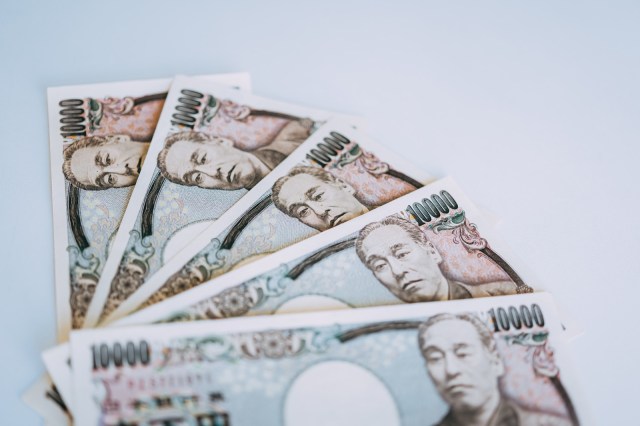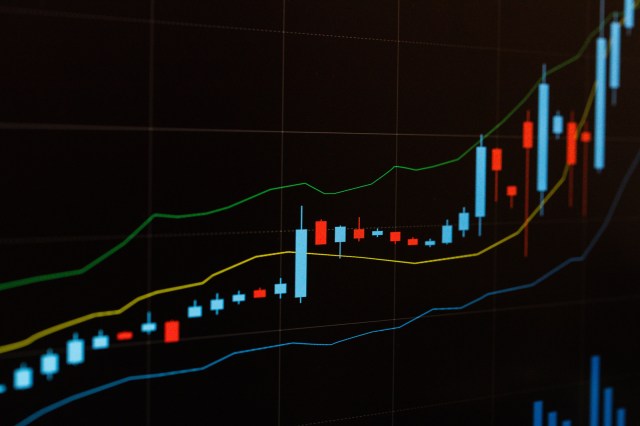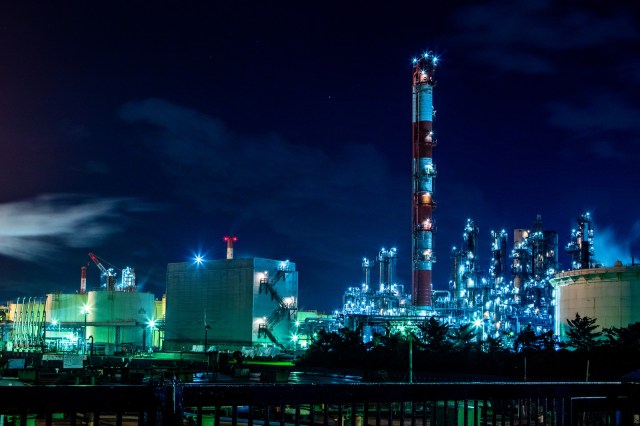
These Japanese companies have the most cash in their pockets.
Japan has always been known as a global leader for technology and IT development, but like every country, their economy is full of successful business in all kinds of industries. So that might lead you to wonder, what kinds of companies are the richest? On August 25, business consulting company Risk Monster (who previously investigated which Japanese companies are expected to still be around in 50 years) looked into it, and compiled a list of the companies in Japan with the fattest wallets.
Now, it’s important to note that what Risk Monster compared to make this list was not gross profits or annual income, but rather the net cash recorded in each of the company’s account books at the time of the survey.
In accounting, net cash measures a company’s ability to quickly pay expenses and debts. It’s calculated as total cash (including assets that can be quickly turned to cash) minus total liabilities. While it doesn’t necessarily mean that a company is having high profits, in general, having high net cash is a good thing, because the more you have, the more you can use to expand your business.
Either way, for the purposes of Risk Monster’s survey, companies with high net cash are considered “rich” because they have money to spend. (and also because the standard Japanese phrase for “rich,” kanemochi, literally means “has money”). You might expect big international names like Sony or Honda to be on the list of companies that have high net cash, but actually the majority are not the usual world-famous, globally branded Japanese companies that you might be familiar with. Well, except for the top richest company, which is probably Japan’s most famous company of all, even over major tech and car companies. If you think about it a little, you might be able to guess who it is.
Starting with number 10, the top ten richest Japanese companies are:
10. Rohm Semiconductor (257.3 billion yen/ US$2.6 billion)
9. Shimano (266.9 billion yen)
8. Taisei Corporation (274.7 billion yen)
7. Secom (360.1 billion yen)
6. Seven and I Holdings (374.7 billion yen)
5. Fanuc Corporation (405.8 billion yen)
4. Keyence (476.6 billion yen)
3. SMC Corporation (536.7 billion yen)
2. Shin-Etsu Chemical Co. (813 billion yen)
1. Nintendo (890.4 billion yen / US$8.5 billlion)
Nintendo, at the top, is the only video game company to reach the top ten in net cash amounts. Even among the top twenty, the only other company involved in the game industry is Bandai Namco Holdings at number 18 (189.8 billion yen), which is also a major presence in the toy, anime, and entertainment categories.
It’s no surprise that Nintendo would have such a huge net cash bank, as they’re a very stable, successful, global company that is capable of both earning a high positive net cash flow and attracting high investments. But what’s also interesting is the difference between the top richest and tenth richest companies’ net cash: Nintendo has more than three times as much as electronic parts manufacturing company Rohm, which might give you cause to wonder why.
What about the other companies? Many of them are either tech companies and parts manufacturers which undoubtedly need a lot of cash to participate in research and development. Some, like SMC Corporation, Keyence, and Fanuc, the third, fourth, and fifth richest companies, are in the business of automation equipment, products, and services, all of which are in high demand for manufacturing.
Shin-Etsu Chemical Co., number two on the list, is the largest chemical company in Japan with a huge share of the world’s production of PVC and silicone, so it’s no surprise that they’ve got the second most amount of cash in their purses. Coincidentally, they also produce semiconductor silicone for use in electronics, and have also worked on lithium battery development, so they, too, can fall into the tech and parts manufacturing category.
The other companies in the top ten are in different industries. You would probably expect Seven & I Holdings, the parent company of 7-11, which dominates the country’s convenience store market, to make the cut. Secom, a security company which has been working on virtual security guards, and Taisei Corporation, the construction company in charge of building Tokyo’s new Olympic stadium, are also big companies with major projects that you would expect to keep a lot of cash on hand.
But who would have thought that Shimano, which is actually a bicycle parts, fishing tackle, and rowing equipment manufacturer, would beat out Rohm, an electronic parts manufacturer?
The list gives us an interesting look at the economy of Japanese businesses. Of course, as previously mentioned, net cash does not necessarily indicate the health of a company, but it does indicate whether that company has the potential to grow in the near future, as it represents whether they have the cash to invest in new enterprises, research, and development.
In other words, Nintendo could be about invest its hundreds of billions of yen in something new. Maybe this means that the rumors of a new Nintendo Switch model could be true after all!
Source: MyNavi News via livedoor news via Hachima Kiko, Investopedia
Top image: Pakutaso
Insert images: Pakutaso (1, 2, 3)
● Want to hear about SoraNews24’s latest articles as soon as they’re published? Follow us on Facebook and Twitter!




 Nintendo announces grand opening date for new official shop in Tokyo, shows off exclusive merch
Nintendo announces grand opening date for new official shop in Tokyo, shows off exclusive merch 16 facts about India that will blow your mind
16 facts about India that will blow your mind Japan’s ‘agri-tech’ farming revolution
Japan’s ‘agri-tech’ farming revolution 17 Mind-Blowing Facts About Russia
17 Mind-Blowing Facts About Russia 16 facts about China that will blow your mind
16 facts about China that will blow your mind Red light district sushi restaurant in Tokyo shows us just how wrong we were about it
Red light district sushi restaurant in Tokyo shows us just how wrong we were about it Sandwiches fit for a sumo served up in Osaka【Taste Test】
Sandwiches fit for a sumo served up in Osaka【Taste Test】 Tokyo Tsukiji fish market site to be redeveloped with 50,000-seat stadium, hotel, shopping center
Tokyo Tsukiji fish market site to be redeveloped with 50,000-seat stadium, hotel, shopping center McDonald’s new Happy Meals offer up cute and practical Sanrio lifestyle goods
McDonald’s new Happy Meals offer up cute and practical Sanrio lifestyle goods Akihabara pop-up shop sells goods made by Japanese prison inmates
Akihabara pop-up shop sells goods made by Japanese prison inmates Anime girl English teacher Ellen-sensei becomes VTuber/VVTUber and NFT
Anime girl English teacher Ellen-sensei becomes VTuber/VVTUber and NFT Starbucks Japan adds a Motto Frappuccino to the menu for a limited time
Starbucks Japan adds a Motto Frappuccino to the menu for a limited time Japanese ramen restaurants under pressure from new yen banknotes
Japanese ramen restaurants under pressure from new yen banknotes Beautiful Red and Blue Star luxury trains set to be Japan’s new Hokkaido travel stars
Beautiful Red and Blue Star luxury trains set to be Japan’s new Hokkaido travel stars Pokémon Sleep camping suite and guestrooms coming to Tokyo Hyatt along with giant Snorlax burgers
Pokémon Sleep camping suite and guestrooms coming to Tokyo Hyatt along with giant Snorlax burgers All-you-can-drink Starbucks and amazing views part of Tokyo’s new 170 meter-high sky lounge
All-you-can-drink Starbucks and amazing views part of Tokyo’s new 170 meter-high sky lounge More foreign tourists than ever before in history visited Japan last month
More foreign tourists than ever before in history visited Japan last month French Fries Bread in Tokyo’s Shibuya becomes a hit on social media
French Fries Bread in Tokyo’s Shibuya becomes a hit on social media Studio Ghibli releases new action figures featuring Nausicaä of the Valley of the Wind characters
Studio Ghibli releases new action figures featuring Nausicaä of the Valley of the Wind characters New private rooms on Tokaido Shinkansen change the way we travel from Tokyo to Kyoto
New private rooms on Tokaido Shinkansen change the way we travel from Tokyo to Kyoto Starbucks reopens at Shibuya Scramble Crossing with new look and design concept
Starbucks reopens at Shibuya Scramble Crossing with new look and design concept Studio Ghibli glasses cases let anime characters keep an eye on your spectacles
Studio Ghibli glasses cases let anime characters keep an eye on your spectacles Beautiful Ghibli sealing wax kits let you create accessories and elegant letter decorations【Pics】
Beautiful Ghibli sealing wax kits let you create accessories and elegant letter decorations【Pics】 Studio Ghibli releases Kiki’s Delivery Service chocolate cake pouches in Japan
Studio Ghibli releases Kiki’s Delivery Service chocolate cake pouches in Japan New definition of “Japanese whiskey” goes into effect to prevent fakes from fooling overseas buyers
New definition of “Japanese whiskey” goes into effect to prevent fakes from fooling overseas buyers Our Japanese reporter visits Costco in the U.S., finds super American and very Japanese things
Our Japanese reporter visits Costco in the U.S., finds super American and very Japanese things Studio Ghibli unveils Mother’s Day gift set that captures the love in My Neighbour Totoro
Studio Ghibli unveils Mother’s Day gift set that captures the love in My Neighbour Totoro New Japanese KitKat flavour stars Sanrio characters, including Hello Kitty
New Japanese KitKat flavour stars Sanrio characters, including Hello Kitty New Pokémon cakes let you eat your way through Pikachu and all the Eevee evolutions
New Pokémon cakes let you eat your way through Pikachu and all the Eevee evolutions Disney princesses get official manga makeovers for Manga Princess Cafe opening in Tokyo
Disney princesses get official manga makeovers for Manga Princess Cafe opening in Tokyo Sales of Japan’s most convenient train ticket/shopping payment cards suspended indefinitely
Sales of Japan’s most convenient train ticket/shopping payment cards suspended indefinitely Sold-out Studio Ghibli desktop humidifiers are back so Totoro can help you through the dry season
Sold-out Studio Ghibli desktop humidifiers are back so Totoro can help you through the dry season Japanese government to make first change to romanization spelling rules since the 1950s
Japanese government to make first change to romanization spelling rules since the 1950s Ghibli founders Toshio Suzuki and Hayao Miyazaki contribute to Japanese whisky Totoro label design
Ghibli founders Toshio Suzuki and Hayao Miyazaki contribute to Japanese whisky Totoro label design Doraemon found buried at sea as scene from 1993 anime becomes real life【Photos】
Doraemon found buried at sea as scene from 1993 anime becomes real life【Photos】 Tokyo’s most famous Starbucks is closed
Tokyo’s most famous Starbucks is closed One Piece characters’ nationalities revealed, but fans have mixed opinions
One Piece characters’ nationalities revealed, but fans have mixed opinions We asked a Uniqlo employee what four things we should buy and their suggestions didn’t disappoint
We asked a Uniqlo employee what four things we should buy and their suggestions didn’t disappoint Princesses, fruits, and blacksmiths: Study reveals the 30 most unusual family names in Japan
Princesses, fruits, and blacksmiths: Study reveals the 30 most unusual family names in Japan The incredible business card of the Chinese millionaire who wants to buy The New York Times
The incredible business card of the Chinese millionaire who wants to buy The New York Times Sounds like Universal Studio Japan’s Nintendo zone is going to be huge!
Sounds like Universal Studio Japan’s Nintendo zone is going to be huge! Platform 13½ set to open at Ueno Station in Tokyo
Platform 13½ set to open at Ueno Station in Tokyo Makoto Shinkai’s Your Name passes two Hayao Miyazaki anime’s earnings, box office romp continues
Makoto Shinkai’s Your Name passes two Hayao Miyazaki anime’s earnings, box office romp continues Nintendo Shares Drop 18% After It Reminds Investors It Did Not Develop Pokémon Go
Nintendo Shares Drop 18% After It Reminds Investors It Did Not Develop Pokémon Go Beautiful Zelda, awesome Pokémon/Mario crossover merch are Nintendo Tokyo shop exclusives【Pics】
Beautiful Zelda, awesome Pokémon/Mario crossover merch are Nintendo Tokyo shop exclusives【Pics】 Ukraine’s ambassador to Japan criticises Uniqlo for continuing to trade in Russia
Ukraine’s ambassador to Japan criticises Uniqlo for continuing to trade in Russia Floating hologram registers coming to Japanese convenience stores【Video】
Floating hologram registers coming to Japanese convenience stores【Video】 Honest Tokyo: 3.3 billion yen of lost cash handed in to police in 2014 alone
Honest Tokyo: 3.3 billion yen of lost cash handed in to police in 2014 alone Japan super budget dining – What’s the best way to spend 1,000 yen at Family Mart?
Japan super budget dining – What’s the best way to spend 1,000 yen at Family Mart? Government plans to establish four “Japanese Silicon Valleys”
Government plans to establish four “Japanese Silicon Valleys” Here’s how the biggest social networking company in China compares to Facebook
Here’s how the biggest social networking company in China compares to Facebook The Animate anime lucky bag is an otaku mind-blowing value【Photos】
The Animate anime lucky bag is an otaku mind-blowing value【Photos】 Sega’s troubles continue as parent company asks hundreds of employees to to quit their jobs
Sega’s troubles continue as parent company asks hundreds of employees to to quit their jobs Major telecom company to give 200-yen apology payouts to 35M people
Major telecom company to give 200-yen apology payouts to 35M people
Leave a Reply